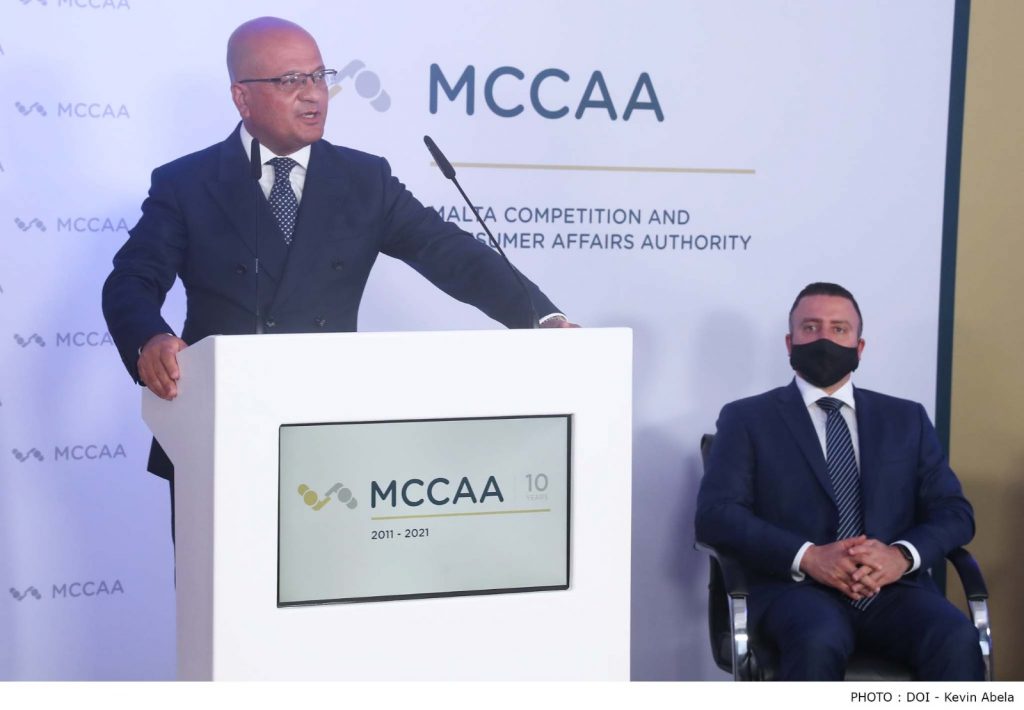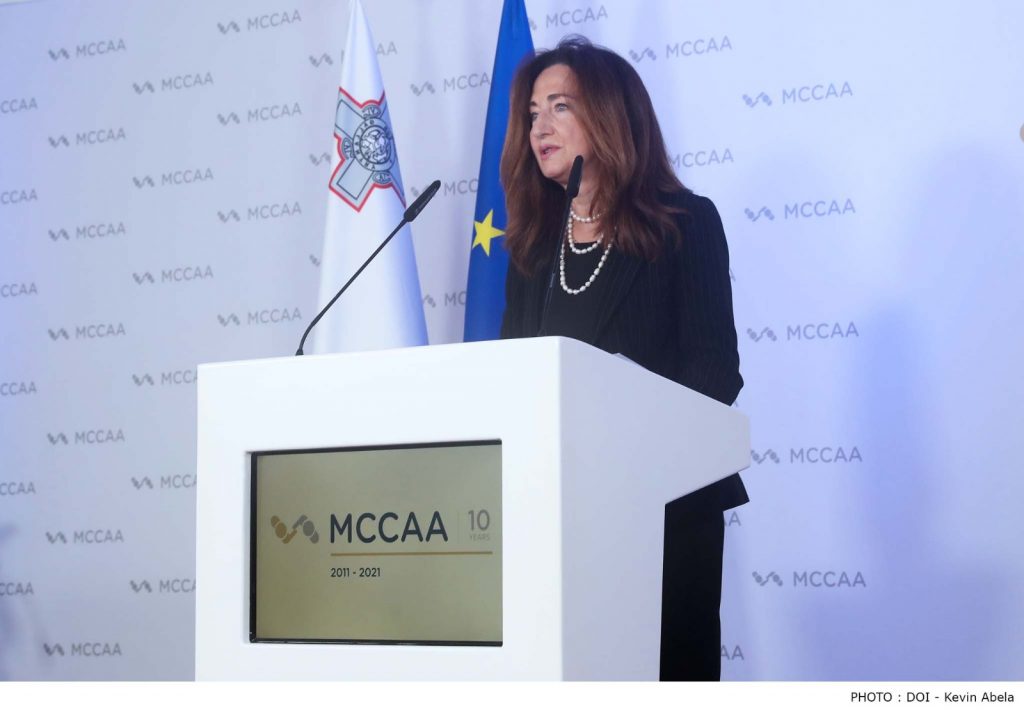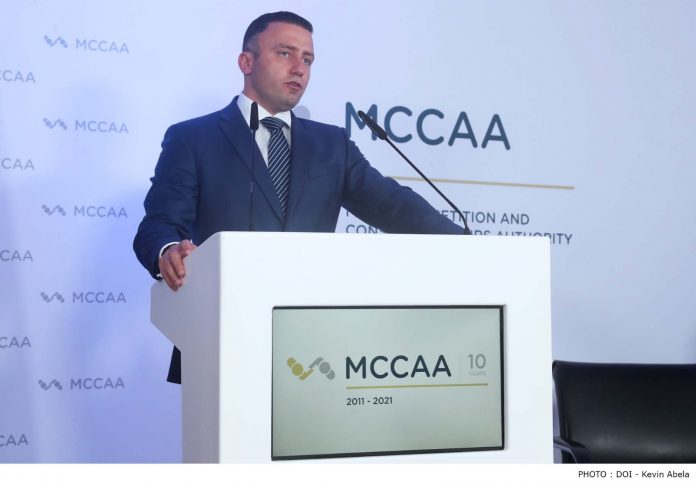The Malta Competition and Consumer Affairs Authority (MCCAA) is celebrating its 10th anniversary in May 2021. The authority is looking back proudly at the many milestones over the past and focusing on the years to come. An international digital conference was organised to discuss the needs and expectations of tomorrow’s consumers with a view to enabling the MCCAA to proactively shape market regulation.
The conference included European Commissioner for Justice, Mr Didier Reynders as a keynote speaker. He thanked the MCCAA for its contribution at EU level during the pandemic, particularly by identifying unsafe products on the market and taking the necessary action.
Minister for Tourism and Consumer Protection Clayton Bartolo underlined the Government’s commitment to continue supporting the MCCAA in putting the consumer on top of the national agenda. Minister Bartolo said that the authority has been engaged in modernising the regulatory framework, also through its active contribution at EU level. The changes are focused on more cooperation between consumer and market surveillance authorities, to strengthen and enhance the efficiency of Malta’s competition law and to make online sales easier and safer for consumers and traders.

Parliamentary Secretary for Consumer Protection and Public Cleansing Deo Debattista noted that, during the past ten years, there were around 125,000 inspections focusing on product safety and price indications, over 18,000 standards adopted and just under 200,000 tests and calibrations were performed within the MCCAA’s two laboratories in Kordin and Mosta respectively.
MCCAA Chairperson Inġ. Helga Pizzuto thanked past and current employees who focus on their work to empower consumers and stakeholders by raising awareness and building trust through an evidenced-based approach. She underlined the authority’s commitment to strengthen compliance, risk management, and digital tools, whilst continuing to invest in organisational capacity.

During the conference, a panel discussion brought together stakeholders’ insights about the importance of putting consumers at the heart of the economy. The discussion focused on the digital requirements, sustainability and consumers’ education and how the authority’s role can continue to evolve in the coming years to maintain the pivotal function it has in society today.










